Not just Boracay...
Top 6 Common Scams in Bangkok That Muslim Travellers Need to Avoid

Bangkok is an incredible city filled with rich history, stunning temples, and mouthwatering street food. But like many popular tourist destinations, it also has its fair share of scams. While most locals are genuinely warm and welcoming, some opportunists take advantage of unsuspecting travellers. Here are some of the most common scams in Bangkok and tips on how to avoid them, especially for Muslim travellers looking for a smooth and halal-friendly trip.
Also read: Bangkok's Chatuchak Weekend Market Guide 2025: Best Tips, Halal Food & Shopping Hacks
1. "Grand Palace is Closed" scam
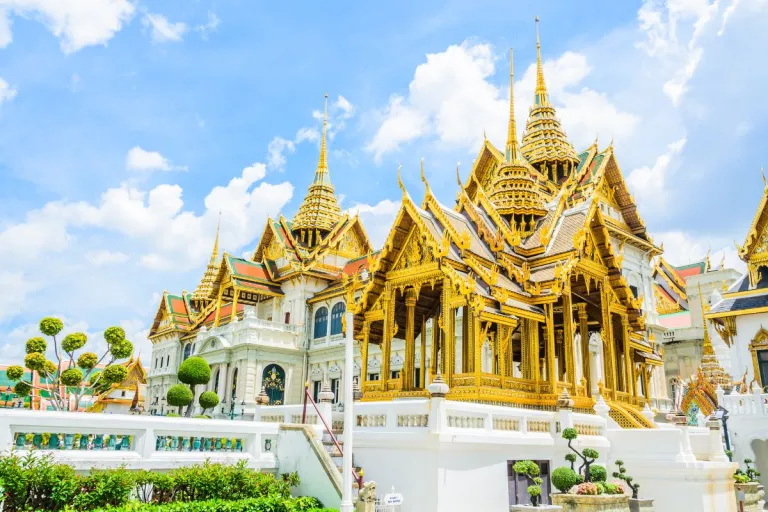 Image credit: Siraphol | Canva Pro
Image credit: Siraphol | Canva Pro
This is one of the oldest tricks in the book, yet tourists still fall for it. The scam usually happens near the Grand Palace, where a seemingly helpful local or even a well-dressed "official" will inform visitors that the palace is closed due to a special ceremony or holiday. They then suggest an alternative itinerary, offering to arrange a tuk-tuk ride to other attractions. Sounds great, right? Well, not quite.
Instead of legitimate tourist spots, the tuk-tuk driver will take unsuspecting visitors to overpriced souvenir shops, jewellery stores, or tailor shops where they are pressured into buying expensive items. The scam works because the scammers get a commission from the shops.
How to avoid it: The Grand Palace is almost always open during regular hours. If someone says it’s closed, don’t take their word for it—check the official website or simply walk to the entrance to confirm for yourself. For Muslim travellers, if you plan to visit nearby mosques such as Haroon Mosque or Ton Son Mosque, always verify their visiting hours and avoid unnecessary detours.
2. The "Broken Taxi Meter" Scam
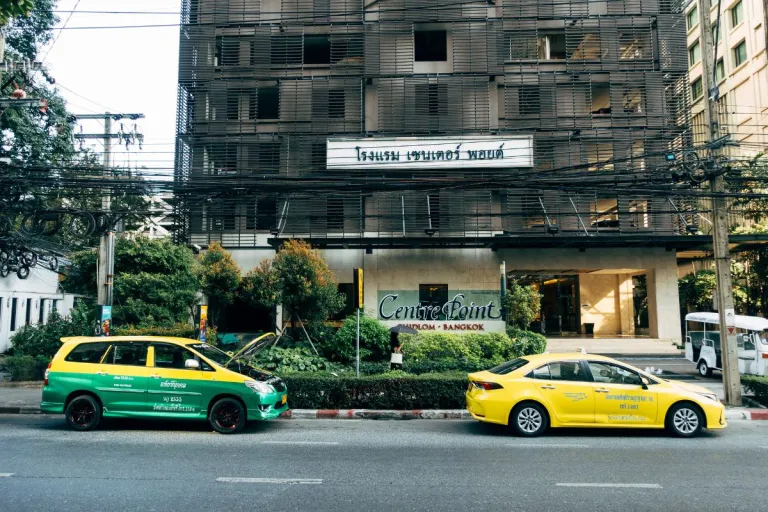 Image credit: Markus Winkler | Canva Pro
Image credit: Markus Winkler | Canva Pro
Taxis are a convenient way to get around Bangkok, but some drivers prey on tourists who aren’t familiar with how the system works. A common scam involves drivers claiming their taxi meter is "broken" or refusing to turn it on. Instead, they offer a fixed fare, which is almost always significantly higher than what the meter would actually charge.
In some cases, drivers may also take unnecessarily long routes to increase the fare, even if the meter is running.
How to avoid it: Always insist on using the meter. If a driver refuses, simply get out and find another taxi. Better yet, use ride-hailing apps like Grab or Bolt, which provide upfront pricing and eliminate the risk of being overcharged. For Muslim travellers, these apps can also help locate nearby halal restaurants and prayer spaces, making it easier to plan your journey efficiently.
3. The "Arab Hypnosis" Scam
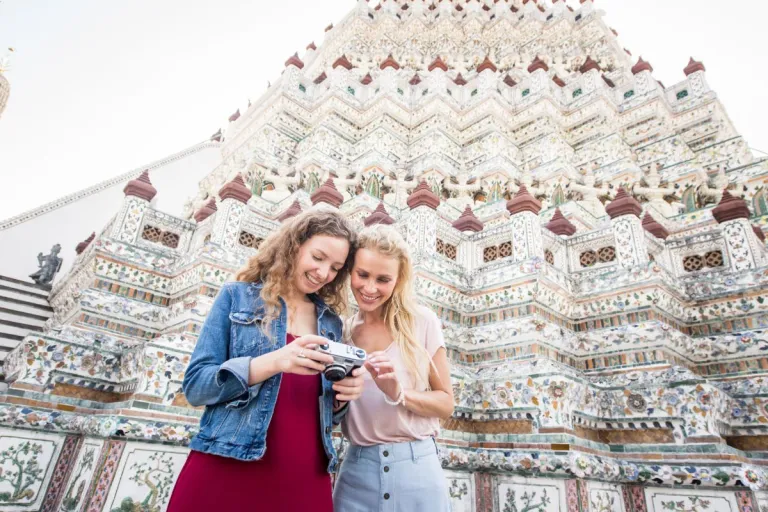 Image credit: Oneinchpunch | Canva Pro
Image credit: Oneinchpunch | Canva Pro
This is a newer scam that has been reported by several travellers. It typically involves a scammer, often of Middle Eastern descent, who approaches tourists and strikes up a seemingly innocent conversation. They may ask where the tourist is from and what currency they use. Then, they casually ask to see what the country’s money looks like. Before the tourist realises what’s happening, they willingly take out their wallet and show their cash—sometimes even handing it over without resistance. Many victims report feeling confused or dazed afterwards, leading to speculation that mild hypnosis or psychological manipulation may be at play.
How to avoid it: If a stranger starts asking about your money, your best bet is to walk away. Never take out your wallet in front of someone you don’t know. Be cautious of overly friendly strangers who seem too curious about your personal finances. Muslim travellers should also be mindful of their belongings, especially in busy markets or areas near mosques, where pickpocketing can also be a risk.
4. Jet Ski Scam
 Image credit: gilaxia | Canva Pro
Image credit: gilaxia | Canva Pro
This scam is common in beach destinations like Pattaya and Phuket. Tourists rent jet skis, and upon returning them, the rental operator falsely claims there is damage and demands an exorbitant repair fee. Sometimes, these scammers even have local enforcers who pressure tourists into paying.
How to avoid it: Take photos and videos of the jet ski before renting it to document its condition. If possible, rent from reputable businesses recommended by hotels or local tourism boards. Muslim travellers heading to beach destinations should also ensure that rental companies respect privacy, such as providing modest swimwear options if needed.
5. Gem Scam
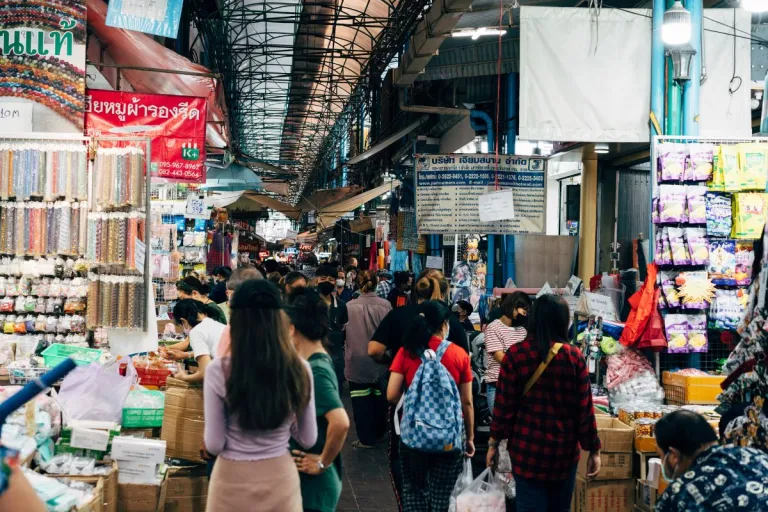 Image credit: Markus Winkler | Canva Pro
Image credit: Markus Winkler | Canva Pro
A friendly stranger or tuk-tuk driver offers to take tourists to a "special" jewellery shop with huge discounts. Once inside, tourists are pressured into buying overpriced or fake gemstones, often being told they can resell them at a high value in their home country.
How to avoid it: Never buy gems from unverified shops or under pressure. Purchase only from reputable jewellery stores with proper certifications. Muslim travellers looking for souvenirs should focus on authentic local crafts, halal food products, or Islamic art instead of falling for such scams.
6. Fake Police Extortion
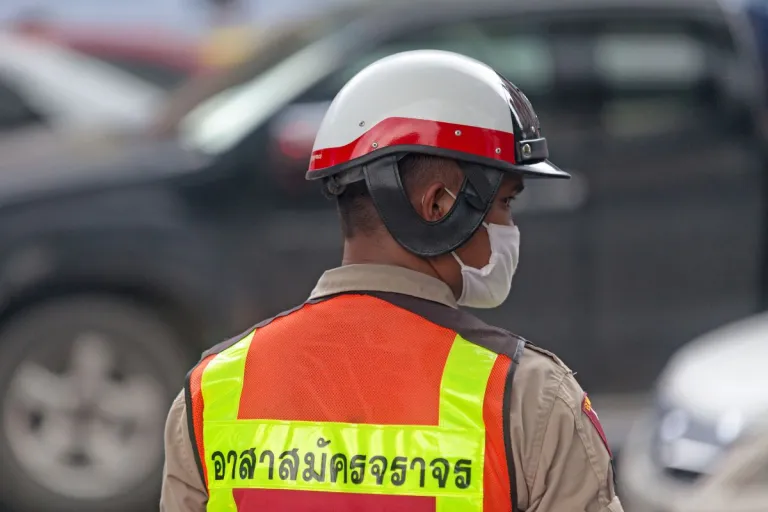 Image credit: BreizhAtao | Canva Pro
Image credit: BreizhAtao | Canva Pro
Some scammers pose as plainclothes police officers and accuse tourists of minor offences like littering or not carrying their passports. They demand an on-the-spot "fine" to avoid further trouble.
How to avoid it: Always ask for proper identification and insist on paying fines at a police station. Keep a copy of your passport instead of carrying the original. Muslim travellers can seek help from embassies or local Muslim organisations if they feel targeted unfairly.
Also read: 10 Must-Try Halal Restaurants in Bangkok
Final tips for staying safe in Bangkok
When travelling in Bangkok, it’s important to stay cautious and aware of potential scams. One of the best ways to stay safe is to be sceptical of overly helpful strangers who offer unsolicited advice, especially those who approach you out of nowhere. While many locals are genuinely kind and hospitable, some scammers use friendliness as a tactic to lure tourists into their traps. Always verify any information you receive from official sources, such as government websites or hotel staff, before making decisions.
Using reputable transportation services is another key to avoiding trouble. Instead of taking taxis that refuse to use the meter, opt for ride-hailing apps like Grab or Bolt, which provide upfront pricing and a safer travel experience. These apps can also be useful for Muslim travellers, as they often include halal restaurant listings and prayer space recommendations, making it easier to plan a hassle-free trip.
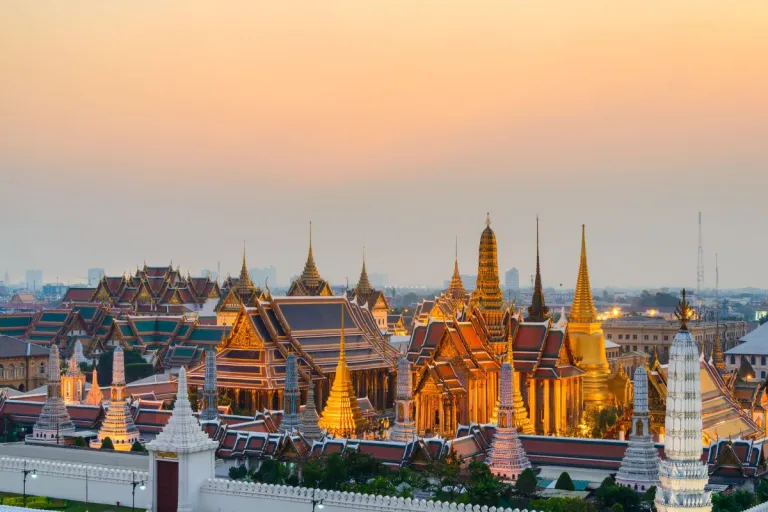 Image credit: Burachet | Canva Pro
Image credit: Burachet | Canva Pro
Being mindful of your surroundings is essential, particularly in crowded tourist areas where pickpocketing and scams are more common. Keep your belongings secure, and if someone tries to distract you with an unusual request, be on high alert. For added security, keep a copy of your passport rather than carrying the original, and be cautious when dealing with people who claim to be law enforcement officers.
Bangkok is a fantastic destination with so much to explore, and staying informed is the key to having a smooth and enjoyable trip. By staying cautious, planning wisely, and trusting your instincts, Muslim travellers can have a scam-free, halal-friendly experience while making unforgettable memories in this vibrant city.
Published at
About Author
Aimi Zulkiflee
Subscribe our Newsletter
Get our weekly tips and travel news!
Recommended Articles
10 Best Halal-Friendly Destinations in The Philippines for Muslim Travellers 10 Best Places for Muslim Travellers to See Tulip Festivals in 2025 Fun Fact: Tulips didn’t actually come from the Netherlands but Türkiye!
10 Halal Anime Food Guide for Muslim Travellers in Japan Muslim-friendly versions of popular anime dishes across Japan!
Top 10 Popular Muslim-Friendly Destinations to Visit in 2025 Our schedules are packed, buddies!
10 Halal Logos in ASEAN That Every Muslim Traveller Needs to Know Look for these logos before you EAT!
Latest Articles
Halal Honeymoon in Sarawak: 10 Romantic Muslim-Friendly Activities Romance, rainforests, and halal adventures await in Sarawak!
5 Muslim-Friendly Theme Parks in Johor Bahru (JB) for Singaporeans to Visit Consider that weekend family trip to JB locked in!
Halal Food Guide: 6 Muslim-Friendly Restaurants at Universal Studios Japan You can savour the halal butter beer here!
MySawasdee Train: A Scenic, Muslim-Friendly Journey From Penang to Hat Yai to Launch in Q3 2025 MySawasdee train is set to launch as regular service In Q3 of 2025!
Why Is The Floor of Masjid al-Haram Always Cool – Even in Scorching Heat? Did you know, Thassos marble is so white that it reflects sunlight easily!

